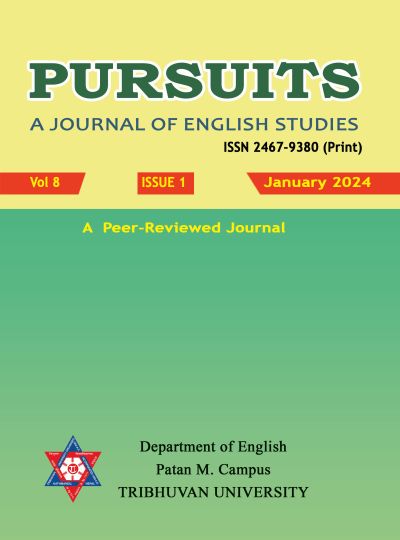Displacement: Trauma of Partition in Intizar Husain's Basti
DOI:
https://doi.org/10.3126/pursuits.v8i1.65337Keywords:
Displacement, horrendous, irreversible, trauma of partition, violenceAbstract
This paper examines the heartrending narrative of displacement in Intizar Husain's Basti (1979) through the concept of trauma of partition. Husain’s novel appears as a souvenir of the partition in front of readers. In the novel, Muslim narrator Zakir observes Pakistan's birth as a new nation in 1947. His migration to Pakistan from India after this political change represents the memory of the victims. Bangladesh emerged as a new nation in 1971 during his stay in Pakistan. These strange political upheavals create fear, disillusionment, and suspicion in the narrator’s mind. Therefore, this paper scrutinizes the reverberation of trauma in partition literature through Zakir’s narrative of displacement in Husain’s novel. As a qualitative applied research, the paper draws on ideas of trauma from Cathy Caruth and Jeffrey C. Alexander to analyze Zakir's story of displacement from India. Horrendous events and the period of their reverberation depend upon the intensity of the traumatic experience. The scene of Rupnagar represents Zakir’s memory of pre-partition but it triggers much when he experiences violence and war in Pakistan. The narrator’s dreadful experience survives in his diary, letters, and memoirs. By the way, this study aims to keep the memory of the victims alive to convey a message to the world. Partition is not only the division of geography, it is also the division of beautiful hearts. The division of a nation in the name of any banner obstructs political stability and the prosperity of humanity.




